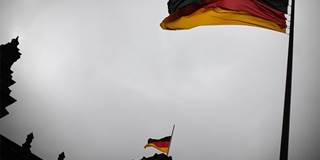Some have called on Germany to embrace its role as Europe's hegemon. Instead, Germany should focus on strengthening the EU by working to create the conditions necessary for a much stronger and more cohesive European foreign and security policy, one that proactively prepares the continent to meet the challenges it confronts.
MUNICH – The prolonged Greek debt crisis and the ongoing influx of refugees into Europe have ignited a debate about Germany’s role within the European Union. Has Germany become the European hegemon? And if not, should it assume that role, as some commentators have suggested, in order to prevent the European project from failing?
The idea of German hegemony – as should be clear to any student of history – is self-defeating. Instead, Germany should assume the position of Europe’s “Chief Facilitating Officer,” as German Foreign Minister Frank-Walter Steinmeier aptly called it, focused on strengthening the EU by working to create the conditions necessary for a truly common European foreign and security policy, one that proactively prepares the continent to meet the challenges it confronts. By throwing its full weight into this task, Germany would not only promote Europe’s influence in the world; it would also deflate the discussion of hegemony.
The 2007 Treaty of Lisbon was based on the idea that the EU’s prosperity and security depend on its members looking beyond their parochial interests and act jointly, in their common interest. In order to achieve this, the treaty created posts, such as the President of the European Council and the High Representative of the Union for Foreign Affairs and Security Policy, whose incumbents could speak and act on behalf of the entire EU.

MUNICH – The prolonged Greek debt crisis and the ongoing influx of refugees into Europe have ignited a debate about Germany’s role within the European Union. Has Germany become the European hegemon? And if not, should it assume that role, as some commentators have suggested, in order to prevent the European project from failing?
The idea of German hegemony – as should be clear to any student of history – is self-defeating. Instead, Germany should assume the position of Europe’s “Chief Facilitating Officer,” as German Foreign Minister Frank-Walter Steinmeier aptly called it, focused on strengthening the EU by working to create the conditions necessary for a truly common European foreign and security policy, one that proactively prepares the continent to meet the challenges it confronts. By throwing its full weight into this task, Germany would not only promote Europe’s influence in the world; it would also deflate the discussion of hegemony.
The 2007 Treaty of Lisbon was based on the idea that the EU’s prosperity and security depend on its members looking beyond their parochial interests and act jointly, in their common interest. In order to achieve this, the treaty created posts, such as the President of the European Council and the High Representative of the Union for Foreign Affairs and Security Policy, whose incumbents could speak and act on behalf of the entire EU.